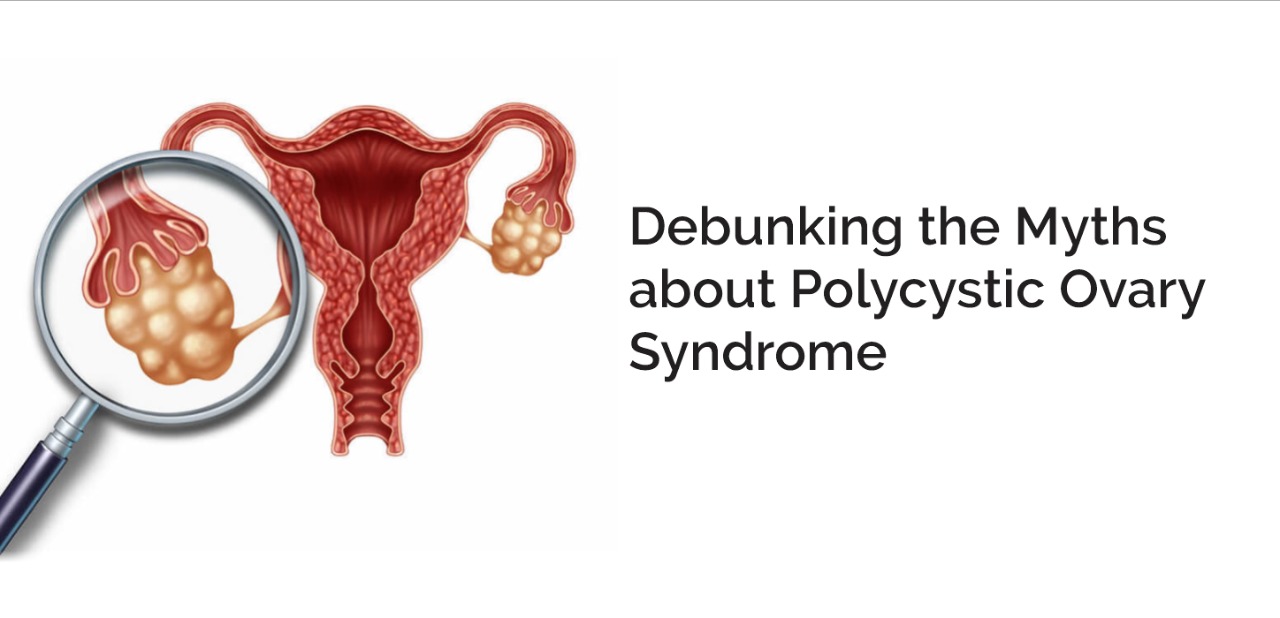

Introduction - What is PCOS?
Polycystic ovary syndrome (PCOS) is a common health condition caused by an imbalance of reproductive hormones. The hormonal imbalance creates issues in the ovaries. As part of a healthy menstrual cycle, the ovaries are responsible for the production of the egg that is released each month.
In women with PCOS, the egg may not be fully developed, or the egg may not release during ovulation. In PCOS, many tiny, fluid-filled sacs grow inside the ovaries. These fluid-filled sacs are called cysts. Hence, it is called “polycystic” ovarian syndrome.
The three main features of PCOS are:
- Cysts in the ovaries
- High levels of male hormones
- Irregular or skipped periods
What causes PCOS?
The exact cause of PCOS is not known. There are several factors that can contribute to hormonal imbalance and the development of ovarian cysts.
Hereditary: PCOS tends to run in families; the syndrome is linked to a change or mutation of one or more genes.
Excess male hormones (androgens): In some women, the ovaries produce high levels of androgens that may lead to hirsutism and acne.
Insulin Resistance: Secreted by the pancreas, insulin is a hormone that helps body cells to utilise sugar for energy supply. When cells become resistant to insulin, there is a rise in blood sugar levels, and the pancreas starts producing more insulin. The excess insulin might increase the production of androgens causing difficulty with ovulation.
Myths and Facts about PCOS
Despite the disorder being so common, there are many myths about Polycystic Ovary Syndrome (PCOS). There is confusion and misinformation about PCOS that impacts the diagnosis and treatment, eventually preventing a woman from living well with PCOS.
Here are some of the most common myths about Polycystic Ovary Syndrome (PCOS) and the facts to set them straight.
Myth:
Only the presence of ovarian cysts confirms the diagnosis of Polycystic Ovary Syndrome (PCOS).
Fact:
For your doctor to make a diagnosis of PCOS, you must have any two out of the following three signs/symptoms:
- Irregular periods
- Increased androgen levels
- Cysts found on ovaries, confirmed by ultrasound sonography of pelvis
Myth:
All women with PCOS have unwanted hair.
Fact:
Hirsutism or abnormal hair growth is one of the common symptoms of Polycystic ovary syndrome (PCOS). Women with PCOS can develop the growth of unwanted hair on their face, upper lip, chin, or chest due to raised levels of androgens. But it is a myth that all women with Polycystic Ovary Syndrome (PCOS) will have this symptom.
Myth:
All women with Polycystic Ovary Syndrome (PCOS) are obese.
Fact:
PCOS itself does not cause weight gain. But being overweight is a risk factor that leads to insulin resistance and causes PCOS. Weight gain can make the symptoms worse in women already having PCOS. Losing weight will help improve PCOS symptoms; hence shedding a few pounds and maintaining a healthy weight is beneficial.
Myth:
PCOS does not affect fertility.
Fact:
PCOS is one of the most common causes of infertility in women. But it doesn’t necessarily mean that you will never be able to conceive. With the advice of your gynaecologist and the appropriate fertility treatment, you can conceive naturally.
If you have PCOS and are trying to conceive, consult a gynaecologist about the choice of treatment that suits your unique health profile. It is best to get your doctor’s support to guide your pregnancy safely.
Myth:
Irregular Menstrual Cycle is a sign of PCOS.
Fact:
There are many other causes of the irregular menstrual cycle. Yes, PCOS is one of them. But it is not the only cause. The regular menstrual cycle is between 21 to 35 days. Many other causes can disturb the cycle, such as:
- Dieting
- Overexercising
- Uterine fibroids
- Pelvic inflammatory disease
- Thyroid disorders
- Breastfeeding
- Mental or emotional stress
For a menstrual cycle less than 22 days or lasting longer than 34 days, consult a gynaecologist. An examination by the gynaecologist will lead to a better diagnosis of the cause.
Myth:
PCOS needs to be treated only when trying to get pregnant.
Fact:
PCOS has many consequences. It directly affects pregnancy. It also has a direct impact on a woman’s health and lifelong wellness. Women with PCOS have a higher risk of diabetes, high blood pressure, depression, anxiety, and endometrial cancer. Timely diagnosis and treatment of PCOS are best for a woman’s future health.
Myth:
PCOS is similar and predictable for every person who has it.
Fact:
PCOS is unique to every person who has the condition. Since PCOS is a syndrome, there is a spectrum of symptoms and severities a patient can experience.
Myth:
PCOS is treated with any birth control pills.
Fact:
This is a very common myth about polycystic ovary syndrome (PCOS). Many women with PCOS have been prescribed certain hormonal birth control pills, but only certain contraceptive pills are effective in the treatment of PCOS symptoms. Consult your doctor to advise you regarding the right hormonal therapy that fits your hormonal profile.
Now that the myths and facts about PCOS have been cleared, let us acknowledge the fact that PCOS has far-reaching repercussions. It can often impact other systems of the body without any warning signs. Early detection and the right treatment is the best solution to PCOS.
To get more myths about polycystic ovary syndrome cleared, consult a gynaecologist online. Just connect with NHAssurance and speak to a renowned gynaecologist on a video call. From diagnosis to investigations to treatment, it can all be managed from the comfort of your home.
